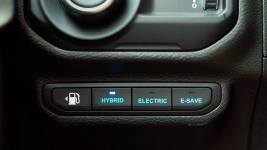With $7.5 billion in funding for electric vehicle chargers, the National Electric Vehicle Infrastructure (NEVI) and Charging and Fueling Infrastructure (CFI) programs represent the United States’ down payment toward a national publicly accessible EV charging network. NEVI, a new $5 billion formula program, offers $1 billion per year for states to implement their own EV Charger deployment plans. The CFI program, a smaller $2.5 billion discretionary program, was made for smaller government organizations, such as counties and cities. Half of CFI funding will go to community-based chargers, and half will go to chargers less than one mile from designated Alternative Fuel Corridors (AFC), highway routes designated for chargers.
To be eligible for NEVI formula funding, chargers must be spaced at most 50 miles away from each other, be sited less than one mile away from an AFC, and have a minimum of four charging ports. States do not get flexibility with siting their federally funded EV Chargers until they are certified as “built out” by USDOT, meaning their entire statewide network fulfills these requirements.


